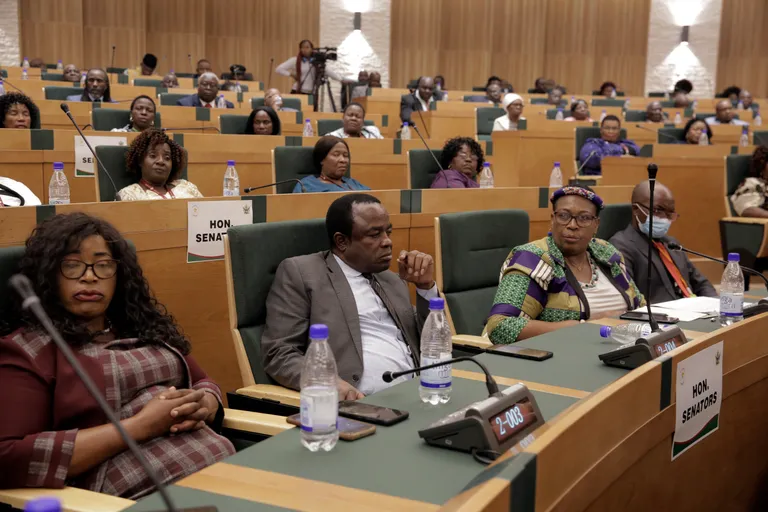As the 2023 general elections in Zimbabwe approach, it is crucial for constituents to hold their members of parliament accountable for their actions and to push for representation that truly serves the interests of the community. One important issue that needs to be addressed is corruption, which has been widely reported on by the media but has seen little action and robust debate by parliamentarians in the current parliament.
Corruption undermines democracy and good governance, and can have a detrimental impact on the economy and society as a whole. It is the duty of parliamentarians to hold government officials accountable and to work towards implementing measures that will prevent and combat corruption. However, there has been a lack of action and robust debate on this issue by parliamentarians in the current parliament. This is a cause for concern as it hinders the potential effectiveness of their actions to address the issue.
Furthermore, there is also a lack of robust debate on the issue of corruption in parliament. Parliament should be a platform for robust debate on important issues facing the country, including corruption. However, it appears that parliamentarians are not sufficiently engaging in meaningful debate and discussions on corruption. This undermines the potential effectiveness of their actions to address the issue.
It is crucial for parliamentarians in Zimbabwe to take a strong stance against corruption and to actively work towards finding solutions to this problem. This includes holding government officials accountable, engaging in robust debate and discussions on corruption in parliament and working towards implementing measures that will prevent and combat corruption. As it affects the society as a whole and undermines the democracy in the country, it is important that parliamentarians take this issue seriously.
Constituents should expect their members of parliament to be transparent and accountable in their decision making, to regularly provide updates on their activities and initiatives, to be accessible and responsive to their inquiries and concerns, and to be willing to engage in meaningful dialogue with the community. They should push for their members of parliament to be actively involved in the legislative process, to advocate for laws and policies that will benefit the community and the country as a whole, to be actively involved in developing and implementing programs and projects that will benefit the constituency and to be accountable for the use of public funds allocated to the constituency.
As the 2023 general elections approach, it is important for constituents to be informed and engaged in the political process and to hold their members of parliament accountable for their actions. By doing so, they can ensure that their representatives truly serve the interests of the community and work towards the development and prosperity of the country.
It is not beneficial for political leaders and parliamentarians to simply sloganeer and criticize the government or opposition at the expense of conducting meaningful debate and coming up with solutions that are beneficial to their constituents. When political leaders and parliamentarians focus solely on criticizing the government or opposition, they are not utilizing their time and resources effectively to address the needs and concerns of their constituents, and this can create a toxic political environment where constructive dialogue and compromise are difficult to achieve.
This approach can also lead to a lack of accountability and a lack of progress on important issues that affect the community. Furthermore, when political leaders and parliamentarians constantly criticize the government or opposition without offering solutions, it can lead to a lack of trust and credibility among the constituents. This can make it difficult for them to engage and work with the government or opposition on important issues, and can also make it difficult for them to mobilize support for their own initiatives.
It is important for political leaders and parliamentarians in Zimbabwe to prioritize the needs and concerns of their constituents and to work towards finding solutions that will benefit the community, rather than solely focusing on criticizing the government or opposition. This includes being active and engaged in their constituency, regularly communicating with their constituents to understand their needs and concerns, participating in debates and voting on legislation, and working with other members of parliament to develop and introduce new legislation.
As the 2023 general elections in Zimbabwe approach, it is crucial that constituents are informed and engaged in the political process, and that they hold their members of parliament accountable for their actions. By doing so, they can ensure that their representatives truly serve the interests of the community and work towards the development and prosperity of the country. It is also crucial that political leaders and parliamentarians in Zimbabwe prioritize the needs and concerns of their constituents and work towards finding solutions that will benefit the community, rather than focusing solely on criticizing the government or opposition.
